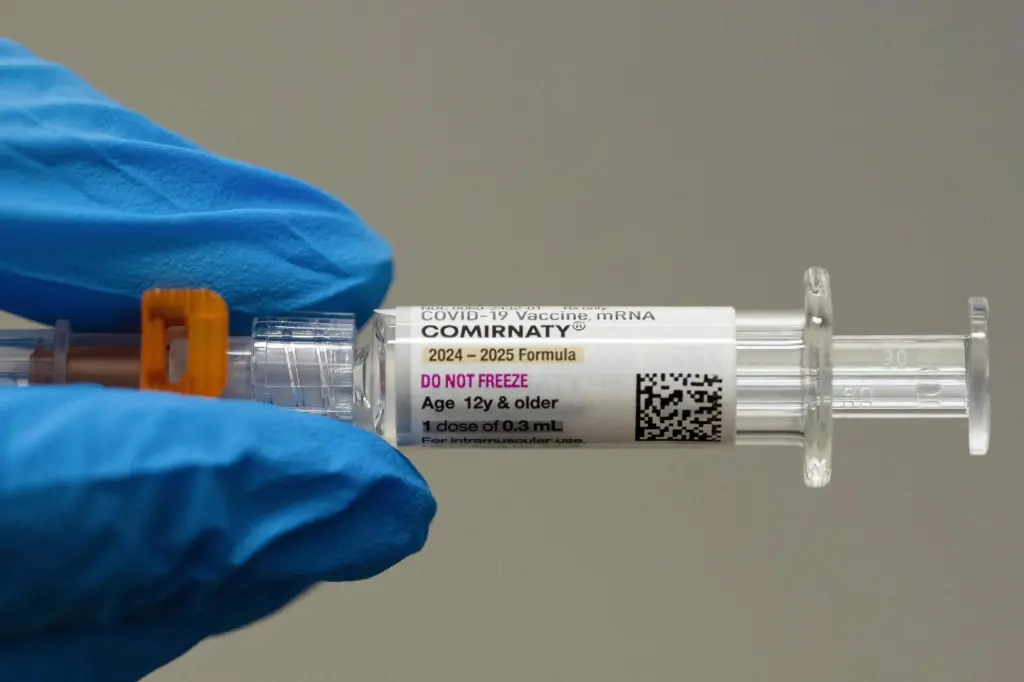
Twenty-five years ago this past June, President Bill Clinton, flanked by Drs. Francis Collins and Craig Venter, announced to the world the completion of a draft version of the entire human genome sequence. Clinton called it the “Book of Life,” written in the “language in which God created life.” But as we got better at translating the purported Edenic language of our genome, we have learned it is less poetry and more of a human parts list with a bunch of assembly instructions. A lot of our genome is gibberish, calling to mind the “infinite monkey” theory, i.e., enough monkeys at enough typewriters could perhaps bang out a fully sensible genome sequence if given enough time. But the non-gibberish parts are really interesting.
One of the coolest things, buried in our genome’s long string of letters, is a huge number of gravesites, each containing the decayed DNA remains of thousands of microbes we have battled — and eventually captured and shut down — over the thousands of years of our evolution. Our own human genes also contain ancient scars from those battles in the form of specific mutations that arose in our ancestors’ immune system genes. These altered genes became improved weapons against the would-be body snatchers, thus allowing our species to continue. Wounded, to be sure, but still standing.
These biological battles are not just in our past. HIV, coronavirus, Hantavirus, West Nile, dengue, Ebola, and many more known and unknown microbial agents swirl around us. They constantly test our defenses, looking for a chink in our immune armor through which they can redirect our rich and tasty biology towards their own profit. Even ones we thought defeated, such as polio, measles and smallpox, are still seeking another shot at us. These microbes have two advantages over us: their sheer numbers and their rapid turnover rates. These two traits allow them to test and deploy every possible variation in their genetic arsenal very quickly against our own more cumbersome and slow biological response.
However, we humans have recently evolved a new kind of weapon that tilts this constant mortal warfare back to our advantage: Our brains. We have learned how to negate our opponents’ advantages through better sanitation, antimicrobial products and enhancing our own immunity in the form of vaccines. This last one has been particularly successful, the equivalent of staging our most important troops on the front line without the enemy’s knowledge, leading to a quick detection and rejection of any encroachment.
But our brains are not an infallible weapon. Witness the recent decisions by so-called “expert panels” misusing those very brains to gut rather than promote vaccine efforts, both current and future. Consider the unquestioned acceptance of hundreds of quack cures being marketed openly as better alternatives to tried and proven therapies. Kennedy et al.’s perversion of science is a war on our intelligence and, ultimately, our survival. It is hard to understand what they hope to accomplish. Is some unknown infection gnawing away at the intelligence of our government’s official health leaders? There are examples of viruses out there that alter brain chemistry to get what they want, e.g., toxoplasmosis that infects mice and makes them unafraid of cats, using the mouse to get into its preferred feline host. Maybe some brain virus or worm is making our health leaders reject our biggest advantage against the microbial world? Whatever the cause, you can almost hear the enemies licking their tiny chops at the prospect of being given free rein at the human buffet.
This malady extends beyond just our health institutions to our entire fragile and living democracy. We are in a mortal battle with alternate political views that want to take over all of democracy’s benefits, but without assuming its obligations and practices. It is a festering sickness in the body politic, an infection that spreads by systematic efforts to shut down our best defenses against it (the rule of law, constitutional rights, scientific reason, etc.).
Will our democracy or its attackers emerge victorious? Our history, like our genome, is littered with the remains of previous battles. So far, democracy has emerged victorious; wounded, perhaps, but still standing. I still believe the current threat can also be turned back, but that depends entirely on the strength of our resistance.
Fintan Steele is an ex-Benedictine monk and priest with a Ph.D. in biology/genetics. He spent most of his life in science communications, including scientific publishing and, most recently, for biopharma and academic centers. He and his husband live in Boulder County. Email: fsteele1@me.com.



